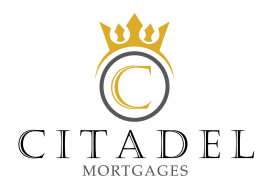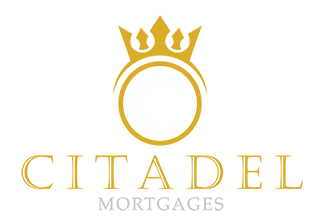The decision on whether mortgage insurance is worthwhile in Canada depends on individual circumstances. Mortgage insurance, often in the form of mortgage life insurance, can provide coverage for the outstanding mortgage balance in the event of the policyholder’s death. While it offers a straightforward application process and convenience, some factors to consider include the potential for higher premiums, limited flexibility, and the fact that the lender is typically the beneficiary. Individuals may want to assess their overall insurance needs, health status, and financial situation to determine if alternative life insurance options may offer more comprehensive coverage and flexibility. Consulting with a financial advisor can provide personalized insights based on specific circumstances.
Owning a home is a significant milestone, but it also comes with financial responsibilities. One of these responsibilities is ensuring that you have adequate protection in place to cover your mortgage in case of unexpected events. Mortgage insurance is often offered as an option to protect your investment, but is it worth it? In this comprehensive guide, we will explore the pros and cons of mortgage insurance in Canada, the different types of insurance available, and the alternatives to consider.
Contents
- Is Mortgage Insurance Worth It in Canada?
- What is Mortgage Insurance?
- The Different Types of Mortgage Insurance
- Mortgage Default Insurance
- Mortgage Life Insurance
- Is Mortgage Insurance Worth It?
- Benefits of Mortgage Insurance
- Risks of Mortgage Insurance
- Alternatives to Mortgage Insurance
- Term Life Insurance
- Critical Illness Insurance
- Disability Insurance
- FAQs
- What are the risks of mortgage insurance?
- Do I need both life insurance and mortgage protection?
- Why is mortgage insurance good?
- Should you carry mortgage insurance?
- What happens if I cancel my mortgage protection?
- What type of insurance is most suitable for mortgage protection?
- What is the difference between life insurance and mortgage insurance?
- Is it possible to avoid mortgage insurance?
- Conclusion
What is Mortgage Insurance?
Mortgage insurance is a financial product designed to protect homeowners and lenders in the event of unforeseen circumstances. It provides coverage for your mortgage, ensuring that if something were to happen to you, your family would not be burdened with the responsibility of paying off the remaining balance on your home loan.
The Different Types of Mortgage Insurance
There are two main types of mortgage insurance in Canada: mortgage default insurance and mortgage life insurance. While they both serve the purpose of protecting your mortgage, they differ in terms of coverage and beneficiaries.
Mortgage Default Insurance
Mortgage default insurance, also known as mortgage loan insurance, is a mandatory requirement for homebuyers who make a down payment of less than 20% of the home’s purchase price. This insurance protects the lender in case the borrower defaults on the mortgage loan. It is typically provided by organizations such as the Canada Mortgage and Housing Corporation (CMHC), Genworth, or Canada Guaranty.
Here are some key points to understand about mortgage default insurance:
- Coverage: Mortgage default insurance covers the lender’s risk if the borrower stops making payments on their mortgage.
- Down Payment Requirement: If your down payment is less than 20% of the home’s purchase price, you are required to have mortgage default insurance.
- Premium Cost: The cost of mortgage default insurance is added to your mortgage loan and is based on the size of your down payment. The insurance premium represents a percentage of the loan amount and decreases as your down payment increases.
- Protection for Lenders: If you default on your mortgage and the lender takes over your home, the mortgage default insurance ensures that the lender can recover the funds they lent to you.
Mortgage Life Insurance
Mortgage life insurance, also known as mortgage protection insurance, is a type of life insurance that specifically covers your mortgage debt. It is an optional insurance product that provides a death benefit to pay off the outstanding balance on your mortgage if you were to pass away.
Here are some key points to understand about mortgage life insurance:
- Coverage: Mortgage life insurance pays off the remaining mortgage balance in the event of the policyholder’s death.
- Beneficiary: The beneficiary of a mortgage life insurance policy is typically the mortgage lender. The death benefit goes directly to the lender to pay off the mortgage.
- Premium Cost: The cost of mortgage life insurance depends on factors such as your age and the principal amount of your mortgage debt. It is generally more expensive compared to term life insurance.
- Flexibility: Unlike term life insurance, mortgage life insurance is tied to your mortgage balance and does not offer the flexibility to use the death benefit for other financial needs.
Is Mortgage Insurance Worth It?
Now that we understand the basics of mortgage insurance, let’s explore whether it is worth investing in for homeowners in Canada. The answer to this question depends on several factors, including your specific circumstances and financial goals.
Benefits of Mortgage Insurance
There are a few key benefits to consider when evaluating the worth of mortgage insurance:
- Protection for Your Family: Mortgage insurance can provide peace of mind, knowing that your family will not be burdened with mortgage payments if you were to pass away unexpectedly.
- Simplified Application Process: Mortgage insurance does not require medical underwriting, making it accessible for individuals with pre-existing health conditions or higher risk lifestyles.
- No Mortgage Qualification Impact: Unlike other types of insurance, mortgage insurance does not impact your ability to qualify for a mortgage.
- Portability: Some mortgage insurance policies offer portability options, allowing you to transfer the coverage to a new mortgage if you decide to move.
Risks of Mortgage Insurance
While mortgage insurance offers benefits, it is important to consider the potential drawbacks:
- Decreasing Payout: Mortgage life insurance has a decreasing payout over time as you repay your mortgage, while the premiums remain the same. This means that the coverage may not align with the outstanding balance on your mortgage as you make payments.
- Limited Beneficiary Options: With mortgage life insurance, the beneficiary is typically the mortgage lender, limiting the flexibility for your family to use the death benefit for other financial needs.
- Cost Considerations: Mortgage insurance premiums are generally more expensive compared to term life insurance. If you are in good health and qualify for other types of life insurance, such as term life insurance, it may provide more comprehensive coverage at a lower cost.
Alternatives to Mortgage Insurance
If you are considering mortgage insurance but are unsure if it is the right choice for you, there are alternative options to explore:
Term Life Insurance
Term life insurance is a popular alternative to mortgage life insurance. It provides coverage for a specific term, typically ranging from 10 to 30 years, and pays out a death benefit if you pass away during the term. Unlike mortgage life insurance, term life insurance offers a fixed payout that does not decrease over time. It also provides more flexibility in choosing beneficiaries and using the death benefit for various financial needs, including mortgage payments.
Critical Illness Insurance
Critical illness insurance is another alternative to consider. It provides a lump sum payment upon the diagnosis of a specified critical illness, such as cancer, heart attack, or stroke. This type of insurance can help cover mortgage payments and other expenses while you focus on your recovery.
Disability Insurance
Disability insurance is designed to provide income replacement in the event that you become disabled and are unable to work. It can help cover mortgage payments and other living expenses during your recovery period.
FAQs
What are the risks of mortgage insurance?
One of the risks of mortgage insurance is the decreasing payout over time as you repay your mortgage. Additionally, the limited beneficiary options and higher premiums compared to term life insurance should be considered.
Do I need both life insurance and mortgage protection?
It depends on your financial goals and the level of coverage you desire. While mortgage protection insurance can provide coverage specifically for your mortgage, life insurance offers more flexibility and comprehensive coverage for various financial needs.
Why is mortgage insurance good?
Mortgage insurance provides a safety net for homeowners, ensuring that their families will not be burdened with mortgage payments if they were to pass away unexpectedly. It can provide peace of mind and financial security.
Should you carry mortgage insurance?
Carrying mortgage insurance depends on your individual circumstances. If you have dependents and want to ensure that your mortgage is paid off in the event of your death, mortgage insurance can be a good option. However, it is essential to evaluate the costs and benefits compared to other types of insurance.
What happens if I cancel my mortgage protection?
If you cancel your mortgage protection insurance, you will no longer have coverage for your mortgage in the event of your death. It is important to consider alternative options or speak with a financial advisor before canceling your policy.
What type of insurance is most suitable for mortgage protection?
While mortgage insurance can provide coverage specifically for your mortgage, term life insurance is often considered a more suitable option. It offers a fixed payout and more flexibility in choosing beneficiaries and using the death benefit for various financial needs.
What is the difference between life insurance and mortgage insurance?
The main difference between life insurance and mortgage insurance is the coverage and beneficiaries. Life insurance provides coverage for a specified term and pays out a death benefit to chosen beneficiaries. Mortgage insurance specifically covers your mortgage and typically pays out to the mortgage lender.
Is it possible to avoid mortgage insurance?
Mortgage insurance can be avoided by making a down payment of at least 20% of the home’s purchase price. This eliminates the requirement for mortgage default insurance. However, mortgage life insurance is optional and can still be considered for additional protection.
Conclusion
Mortgage insurance can provide valuable protection for homeowners in Canada. It offers peace of mind and ensures that your family will not be burdened with mortgage payments if you were to pass away unexpectedly. However, it is important to weigh the benefits and drawbacks of mortgage insurance, consider alternative options such as term life insurance, critical illness insurance, or disability insurance, and evaluate your individual circumstances and financial goals. Speaking with a financial advisor can help you make an informed decision about whether mortgage insurance is worth it for you.
Remember, Citadel Mortgages is here to assist you in navigating the complexities of mortgage insurance and other financial matters. Reach out to us today for expert advice and personalized solutions to protect your home and financial future.

Unexpected costs when buying a home in Canada
When buying a home in Canada, there are several unexpected costs that buyers should be aware of to avoid financial surprises. Some of the key

Considering An Early Mortgage Renewal
Why consider renewing your mortgage ahead of time? Well, one big reason is changes in interest rates. If rates drop, jumping on an early renewal

How to get a HELOC on an Investment Property in Canada
To get a Home Equity Line of Credit (HELOC) on an investment property, you need to follow these steps: 1. Know Your Finances: Estimate the

Expert Advice: Buying a House in Cash in Canada
In exploring the possibility of buying a house in cash in Canada, it’s essential to understand the various aspects that come into play. Here’s a

Average Down Payment for a House in Canada
According to the Canadian Real Estate Association, the average house price in Canada hit around $637,673 in August 2022. This means if you’re looking to

Assumable Mortgages: An In-Depth Look
Assumable mortgages are a unique financing alternative that could potentially save you thousands of dollars and simplify the home-buying process. But what exactly are they





